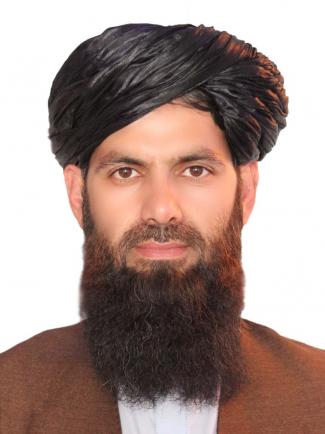Vice- Chancellor of Finance and Admimi
Administrative and Financial Vice-Chancellery of Daikundi University
The Administrative and Financial Vice-Chancellery of Daikundi University is a second-grade administrative position that was established in 1398 (2019) as part of the university’s organizational structure, which includes 22 posts.
Undoubtedly, the provision of financial and administrative services, and the sound leadership of universities, is carried out through capable and powerful leadership and management, supported by relevant departments. One such department in the structure of higher education, based on national higher education rules and regulations, is the Administrative and Financial Vice-Chancellery. This office, according to the official hierarchy, is responsible for leading and overseeing all financial and administrative affairs. These include the management of revenues, expenditures, salaries, human resources, dormitories, transportation, information technology, maintenance and safeguarding of movable and immovable assets, preparation and defense of both regular and development budgets, and their proper implementation, as well as providing financial and administrative consultation to the university leadership.
Main Responsibilities of the Administrative and Financial Vice-Chancellery of Daikundi University:
- Execution of all matters related to expenditure accounting, regular and development budgets for financial and accounting operations of the university.
- Preparation, follow-up, and management of salary disbursements for all administrative and service staff, professors, and handling of university expenditures.
- Recording payment documents in the cashbook and reconciling them with the ledger.
- Disbursement of funds based on standard documentation and safe availability.
- Preparation of the university’s annual financial plan.
- Management of dormitory affairs to ensure basic living facilities for professors and students.
- Management and organization of university publications, media, public awareness materials, banner design, scientific works of professors, journals, periodicals, monthly and quarterly publications, and other print materials to ensure quality dissemination.
- Preparation and dissemination of reports on key university activities through platforms such as WhatsApp, Twitter, Facebook, to the Ministry, national radio and television, and provincial authorities.
- Planning and implementation of procurement procedures for necessary university supplies.
- Procurement, pricing, and processing of payment documents (office equipment, stationery, lubricants, drinking water, internet equipment, and retail purchases such as plumbing, electrical, and carpentry tools); preparation and processing of tender announcements.
- Follow-up on development projects such as: drinking water system, mosque construction, completion of the semi-finished agricultural teaching building, green spaces, student dormitories, equipping laboratories, and agricultural research farms.
- Completion of the solar power system project and university canteen project.
- Preparation of the annual procurement plan.
- Management and implementation of IT systems to maintain an accurate and up-to-date information technology system.
- Implementation of internet security policies within the university’s network.
- Management and regulation of the university’s CCTV surveillance system.
- Oversight of internet distribution for professors, administrative staff, library, and computer labs.
- Provision of short-term computer and English training for professors, students, and administrative staff to enhance capacity.
- Provision of hardware and software services (computers, printers, LCD projectors) to administrative and academic departments, classrooms, and halls during workshops, seminars, and other academic and administrative programs.
- Sending, receiving, and distribution of university’s official correspondence and documents through electronic archiving for swift execution.
- Reviewing, analyzing, and responding to correspondence, reports, directives, and decrees from authorities, including drafting orders, registering, and distributing them to relevant departments.
- Organizing and holding relevant meetings, documenting and distributing meeting minutes to related departments for follow-up and implementation.
- Compilation, consolidation, and preparation of periodic reports (weekly, quarterly, and annual) and submission to related departments.
- Management and supervision of distribution, recording, and allocation of items (stationery, office equipment, spare parts, lubricants, etc.) for professors and staff.
- Organizing inventory in the storeroom and recording items based on the inventory regulation list.
- Recording of expenditure disbursement vouchers in the item register and reconciling distributed goods with the distribution journal.
- Preparation of daily attendance and overtime reports (professors, administrative and service staff) based on the attendance register, and submission to the General Financial and Accounting Department for salary and overtime payments, as well as other (academic and administrative) benefits.
- Distribution of leave forms and oversight of daily attendance of personnel.
- Coordination of service staff to carry out cleaning duties and maintain order across departments.
- Recruitment of administrative and service staff through open competition and official appointment.
